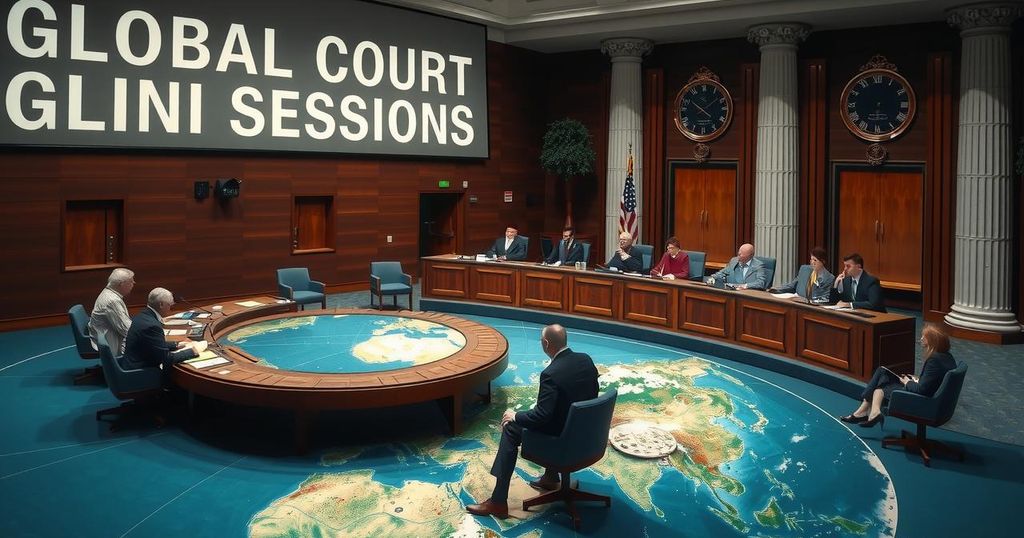International Court of Justice Hears Evidence on Climate Change Responsibilities

The ICJ has begun hearings to clarify governments’ legal responsibilities in climate change, with nearly 100 countries, including Vanuatu, participating. This case aims to define what nations must do to combat climate change and address the damages caused. Although the ruling is non-binding, it could inform future climate-related legal actions globally, particularly aiding vulnerable countries seeking compensation from developed nations.
The International Court of Justice (ICJ), based in The Hague, has commenced hearings in a crucial case that aims to clarify the legal responsibilities of nations regarding climate change. Nearly 100 countries, led by Vanuatu, which initiated the push for a legal opinion, will present evidence concerning their obligations under international law to combat climate change and mitigate damages caused by it. This case is particularly significant for vulnerable nations affected by climate-related disasters. The outcome, although non-binding, could bolster future climate litigation across the globe by providing a clearer framework for accountability among countries that contribute to climate degradation.
The request for a legal opinion originated five years ago, spearheaded by law students in Fiji, and subsequently endorsed by Vanuatu, which has suffered significantly from the impacts of climate change, including the recent devastation of a double cyclone that affected 80% of its population. Following these concerns, the UN General Assembly submitted two vital questions to the ICJ regarding nations’ duties to protect the climate and the ramifications of harmful actions or inactions that aggravate climate conditions. Vanuatu will be the initial nation to testify, emphasizing its frontline status in experiencing climate change effects, with its special envoy asserting the critical need for international legal clarity on climate obligations.
This court case unfolds shortly after the COP29 climate summit, where the commitment made by developed nations to allocate $300 billion annually by 2035 in climate financing was met with dissatisfaction from developing countries, highlighting the inadequacy of such funds against their pressing challenges. Various nations, including major polluters such as the United States and China, alongside representatives from the oil-producing group OPEC, are slated to present their perspectives during the hearings, which are expected to conclude on December 13, 2023, with the ICJ’s opinion anticipated in 2025.
The proceedings at the International Court of Justice (ICJ) mark a pivotal moment in international climate law, addressing the urgent need for legal frameworks that articulate the responsibilities of nations amidst the growing climate crisis. The initiative led by Vanuatu underscores the disproportionate effects of climate change on small island states, which face existential threats from rising sea levels and extreme weather events. The legal inquiries posed to the ICJ focus on international obligations towards greenhouse gas emissions and the accountability of states whose actions have significantly harmed the climate system.
In summary, the hearings at the International Court of Justice aim to address crucial climate responsibility issues, potentially influencing global climate litigation frameworks. The engagement of numerous countries highlights the widespread concern regarding the impacts of climate change and the urgency for a coherent legal response. The anticipated ICJ opinion in 2025 could provide a basis for future reparations and legal actions by vulnerable nations against developed countries, emphasizing the international community’s duty to address climate change comprehensively.
Original Source: www.bbc.co.uk






